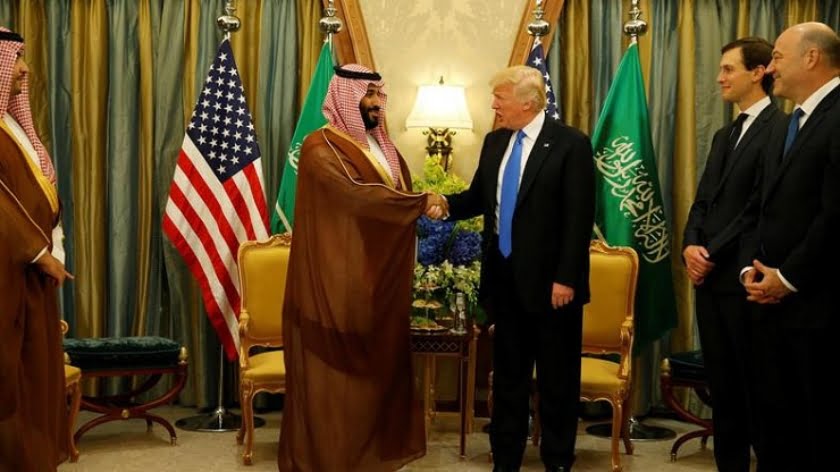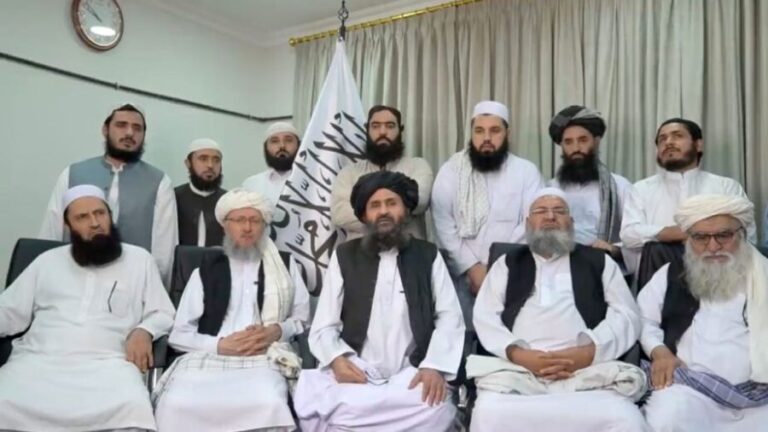The Washington Post Is Wrong: BRICS Isn’t “A Bloc Against The West”
The US-led West continues to manipulate their targeted audience’s perceptions about this bloc as epitomized by WaPo’s latest piece. The reason for this is simple and it’s that they want folks to fear the game-changing global systemic consequences of this bloc successfully accomplishing its goal of reforming the world order back to its initially envisioned multipolar nature as described in the UN Charter.
The Washington Post (WaPo) published a piece on Friday about why “Russia’s allies have been pretty quiet on Ukraine”, which is full of falsehoods about Moscow’s BRICS partners, the most egregious of which is that they comprise “a bloc against the West”. The two authors who published the piece claim that Brazil, Russia, India, China, and South Africa are driven by “influence, status and norms” to oppose the US-led West, though that’s not exactly the case like the reader might be misled into thinking after reading WaPo’s article. The present analysis will explain the true nature of this non-Western bloc in order to clarify what keeps its members together and why their motives are misportrayed by the West.
The BRICs countries first came together due to the realization that these emerging economies could potentially return the world order to its initially envisioned multipolar nature as enshrined in the UN Charter after the bipolarity of the Old Cold War sabotaged that noble vision as did the brief period of American unipolarity immediately afterwards. The US-led West does indeed dominate most global institutions and consequently exploited them to impose its subjectively defined standards upon all others in pursuit of their self-interests at everyone else’s expense, especially the BRICS’. Political influence inevitably accompanies economic influence, which inspired the BRICS to unite.
They’ve made slow but steady progress towards this ambitious goal as evidenced by the creation of the BRIC’ New Development Bank and other complementary structures such as the Asian Infrastructure Investment Bank. Furthermore, the Russia-India-China (RIC) core of this bloc has comprehensively expanded their cooperation through India’s admission to the Shanghai Cooperation Organization (SCO) alongside its Pakistani rivals. Chinese Foreign Minister Wang Yi’s historic sojourn to South Asia last week also spoke to Beijing’s desire to enter into a rapprochement with New Delhi despite unresolved issues along their disputed frontier so as to maximally optimize their cooperation in light of recent events.
The US-led West’s unprecedented and preplanned response to Russia’s ongoing special military operation in Ukraine has accelerated preexisting multipolar trends and is therefore speeding up the emerging Multipolar World Order that US President Joe Biden describes as the “New World Order”. Whatever one wants to call it, this global systemic transition is proceeding apace in alignment with the BRICS countries’ predictions and as evidenced by their principled neutrality (with the exception of Brazil’s symbolic vote against Russia at the UNGA under immense US pressure) in refusing to support any of the participants in the Ukrainian Conflict against the other.
They keenly understand that there’s never been a better moment to flex their strategic autonomy in order to collectively advance their shared multipolar vision of reforming the world order in order to return it the multipolar nature that the international community initially envisioned when writing the UN Charter that officially laid the basis of international law. Nevertheless, despite their shared goal, it’s also inaccurate for WaPo’s writers to describe the BRICS countries as “allies” since there still exist some noticeable differences between them.
China and India’s unresolved tech, territorial, and trade disputes continue to impede more meaningful cooperation between these neighboring Great Powers. Russia, meanwhile, supports India’s interpretation of the Kashmir Conflict that’s at odds with China’s, and Moscow also backs Vietnam’s UNCLOS-influenced interpretation of international law in the South China Sea that also contradicts China’s. As for South Africa, it abandoned a plan for Russia to build several nuclear reactors while Brazil’s Bolsonaro harshly lashed out at China during the campaign trail several years ago.
These objectively existing obstacles to their further cooperation indisputably prove that the BRICS countries cannot be described as one another’s “allies” in the traditional sense of the term, yet the US-led West continues to manipulate their targeted audience’s perceptions about this bloc as epitomized by WaPo’s latest piece. The reason for this is simple and it’s that they want folks to fear the game-changing global systemic consequences of this bloc successfully accomplishing its goal of reforming the world order back to its initially envisioned multipolar nature.
That would very clearly occur at the expense of the US-led West’s unipolar hegemony that’s already been in decline for at least a decade according to most estimates and would thus harm the interests of that civilizational bloc’s economic, ideological, and political elite. This explains why their media proxies continue manipulating perceptions about BRICS in order to scare the public into supporting whatever pressure campaigns their governments might commence against those countries in an attempt to coerce them into changing their policies.
India has come under immense pressure for its impressively neutral position towards the Ukrainian Conflict yet hasn’t wavered an inch in terms of sacrificing its grand strategic interests by senselessly condemning its special and privileged Russian strategic partner with whom it’s unofficially aiming to jointly assemble a new Non-Aligned Movement (“Neo-NAM”). This speaks to that civilization-state’s confidence in its rise as a globally influential Great Power in the bi-multipolar transitional phase between unipolarity and multipolarity as well as its leadership’s geopolitically pragmatic vision.
Try as they might, the US-led West is unlikely to break the BRICS’ unity, or at least influence India to backstab its half-century-long de facto Russian ally. Nevertheless, their media proxies will continue manipulating the public’s perceptions about this bloc by falsely fearmongering that it’s “against the West” and comprised of a bunch of so-called “allies” who presumably don’t have any disputes amongst themselves when that’s factually not the case whatsoever at all. So long as their permanent military, intelligence, and diplomatic bureaucracies (“deep state”) support multipolarity, BRICS will never break.







